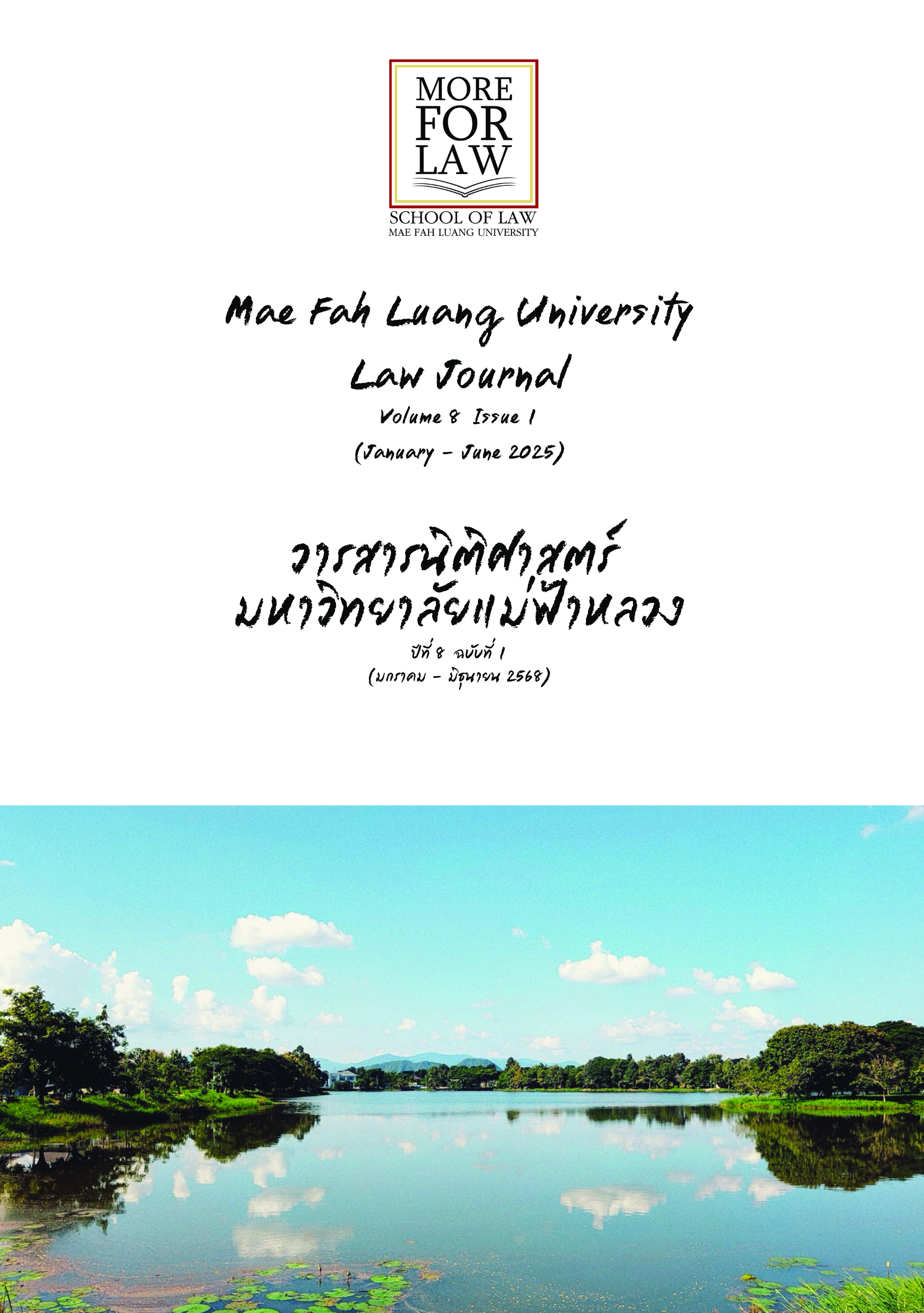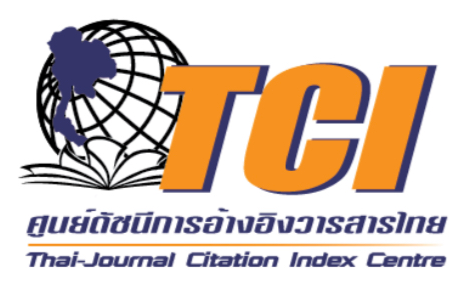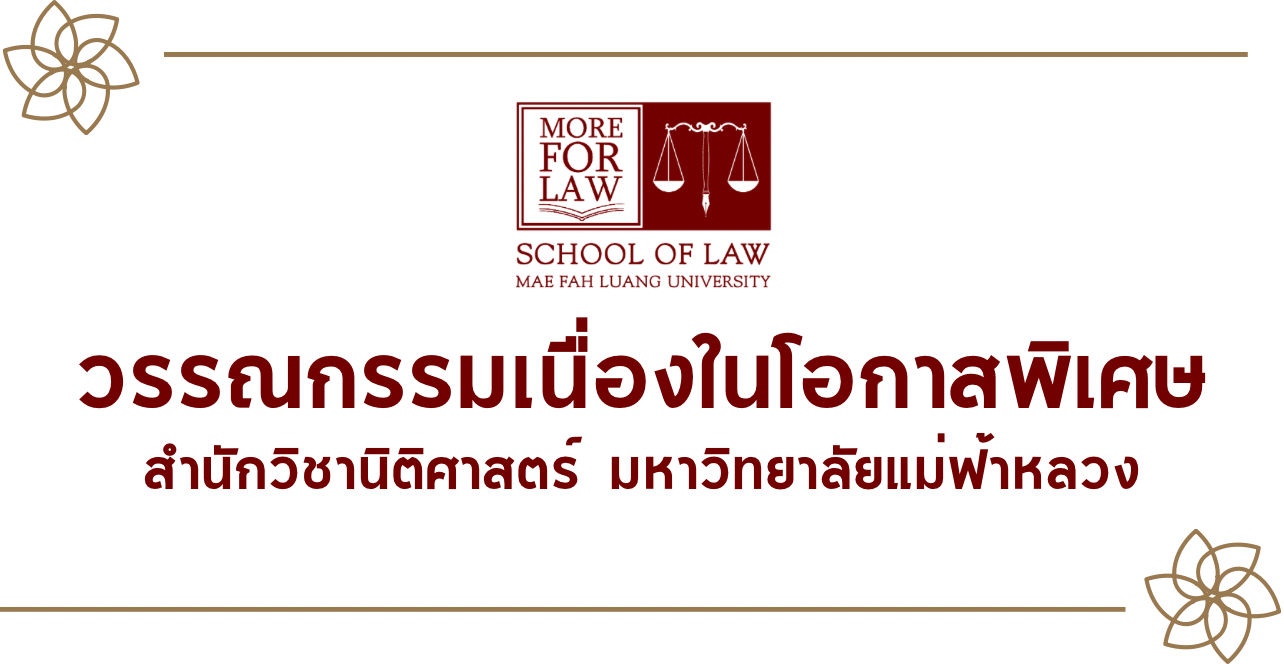Problems in Enforcing Personal Income Tax Collection under the article ‘Independent Personal Services’
DOI:
https://doi.org/10.14456/mfulj.2025.2Keywords:
Personal Income Tax, Double Taxation Agreements, Independent Personal ServicesAbstract
The taxation of independent personal services is a complex issue under Thai domestic law and becomes even more complicated when considering double taxation conventions between countries. This article aims to study the personal income tax obligations of non-residents working in Thailand by analyzing the problems arising from the application of the Thai Revenue Code and the enforcement of double taxation conventions. It will highlight the issues caused by ambiguities and the current tax law enforcement problems, as well as propose solutions to address these challenges.
The problems in collecting personal income tax under the provisions of the Thai Revenue Code begin with classifying income types under Section 40. The type of income an individual receives relates to the withholding tax issue. For the case of independent personal services performed by non-residents, withholding tax must be applied under Section 50 and the Revenue Department’s Order Tor. Por. 4/2528. Taxpayers face uncertainties due to unclear legal provisions.
Regarding double taxation conventions, this article focuses on Article 14, which pertains to independent personal services according to the UN Model Tax Convention. It will analyze the enforcement and issues arising from it, alongside comparing it with the OECD Model Tax Convention, which does not include Article 14 and instead reverts to Article 5 concerning permanent establishment. The study of Article 14 under double taxation conventions covers the definition of a “fixed base” that lacks clear interpretation in Thailand, as well as other conditions and criteria in double taxation conventions such as the duration test and the minimum income threshold criteria.
To address the issues of enforcing personal income tax on independent personal services under the Thai Revenue Code and double taxation conventions, it may be necessary to amend the law and provide additional guidelines to ensure clarity and fairness for taxpayers. This will result in more effective tax law enforcement and reduce international disputes.
Downloads
References
สรรค์ ตันติจัตตานนท์, คําอธิบายกฎหมายภาษีระหว่างประเทศ: ข้อบทเรื่องสถาน ประกอบการถาวรภายใต้อนุสัญญาภาษีซ้อนฯ ประวัติศาสตร์ ทฤษฎีแนวคิด แนวทางปฏิบัติระหว่างประเทศ, (กรุงเทพมหานคร: ปณณรัช, 2560).
สรรค์ ตันติจัตตานนท์, ข้อบทเรื่อง “กำไรจากธุรกิจ” ภายใต้อนุสัญญาภาษีซ้อน : ปัญหาและแนวปฏิบัติในบริบทกฎหมายไทย, วารสารนิติศาสตร์ มหาวิทยาลัยธรรมศาสตร์, ปีที่ 52 ฉบับที่ 4 (ตุลาคม-ธันวาคม 2566).
Reimer, E. and Rust, A, Klaus Vogel on Double Taxation Conventions (FOURTH Edition), CPI Group (UK) Ltd., 2015).
Organization for Economic Cooperation and Development, Model Tax Convention on Income and on Capital: Condensed Version 2000, (OECD: OECD Publishing, 2000).
Organization for Economic Cooperation and Development, Model Tax Convention on Income and on Capital: Condensed Version 2017, (OECD: OECD Publishing, 2017).
United Nations, Model Double Taxation Convention between Developed and Developing Countries 1980, (United Nations, 1980).
United Nations, Model Double Taxation Convention between Developed and Developing Countries 2011, (United Nations, 2011).
United Nations, Model Double Taxation Convention between Developed and Developing Countries 2017, (United Nations, 2018).
Downloads
Published
How to Cite
Issue
Section
License
Copyright (c) 2025 Mae Fah Luang University Law Journal

This work is licensed under a Creative Commons Attribution-NonCommercial-NoDerivatives 4.0 International License.






